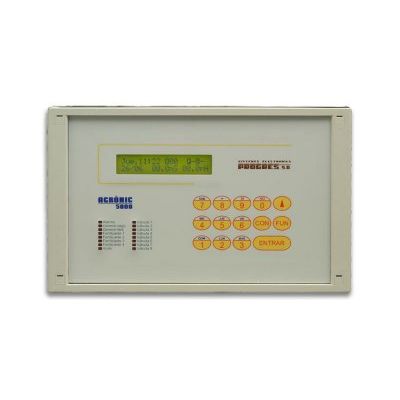

- Home
- Companies
- Sistemes Electrònics Progrés S. A.
- Products
- Agrónic - Model Net I - Irrigation ...

Agrónic - Model Net I -Irrigation Communities Controller
Agrónic Net is a system for remote control and remote management of irrigation in irrigation communities, parks, gardens and farms. Its multiple program options, communication and field modules make it a fully customizable and always evolving system.
Systems and controller for telecontrol and remote management of irrigation communities and large farms, with communication between the central units and by means of monocable system, radio controller and GPRS. For small communities of up to 320 users
The Agrónic Net I system consists of:
Concentrator
- Agrónic Net I with cabinet
- + Agrónic Radio Link option
- or Single-Wire Link
- Agrónic Net I / PC
- Agrónic Radio (EAR) or
- Agrónic Monocable (EAM)
Concentrator Agrónic Net IThese are the characteristics of the concentrator The Agrónic Net I concentrator is an autonomous controller of the control center that governs the system and allows the control of all the elements that a community can have: hydrants, motors, frequency converters, filters, fertilizers, general counters, motorized valves, ponds, wells, etc.
By frequency, irrigation schedules, by demand, by endowment, by sensors, etc.
Read the status of the different irrigation valves at all times, as well as their instant and accumulated consumption.
Create different groupings of valves, being able to assign them common characteristics and programs, as well as to distribute the available flow.
To monitor the hydric state of the crop using different sensors.
accumulated,reading of sensors, performances, etc.., to be processed, exported and displayed in graphs and synoptic through the Agrónic Net PC program or others.
Manage any element in the network: ponds, pumps, pressure regulators, motorized valves, filters, etc.
Detect pipe breaks, as well as pressure and/or flow failure.
Apply different tariffs for water consumption.
And a long etc. of possibilities of work, besides allowing the own personalization of the particular necessities of each community
